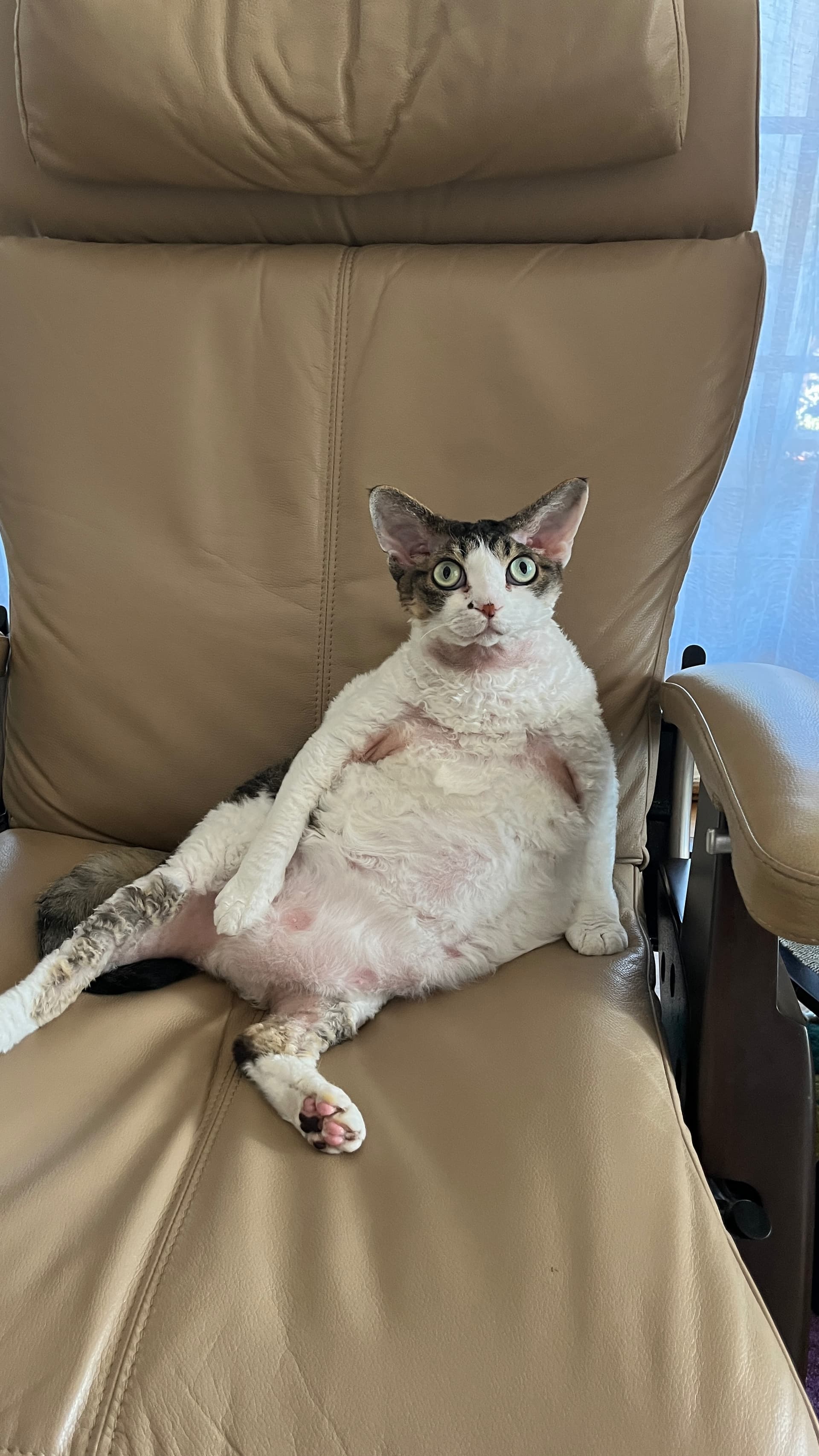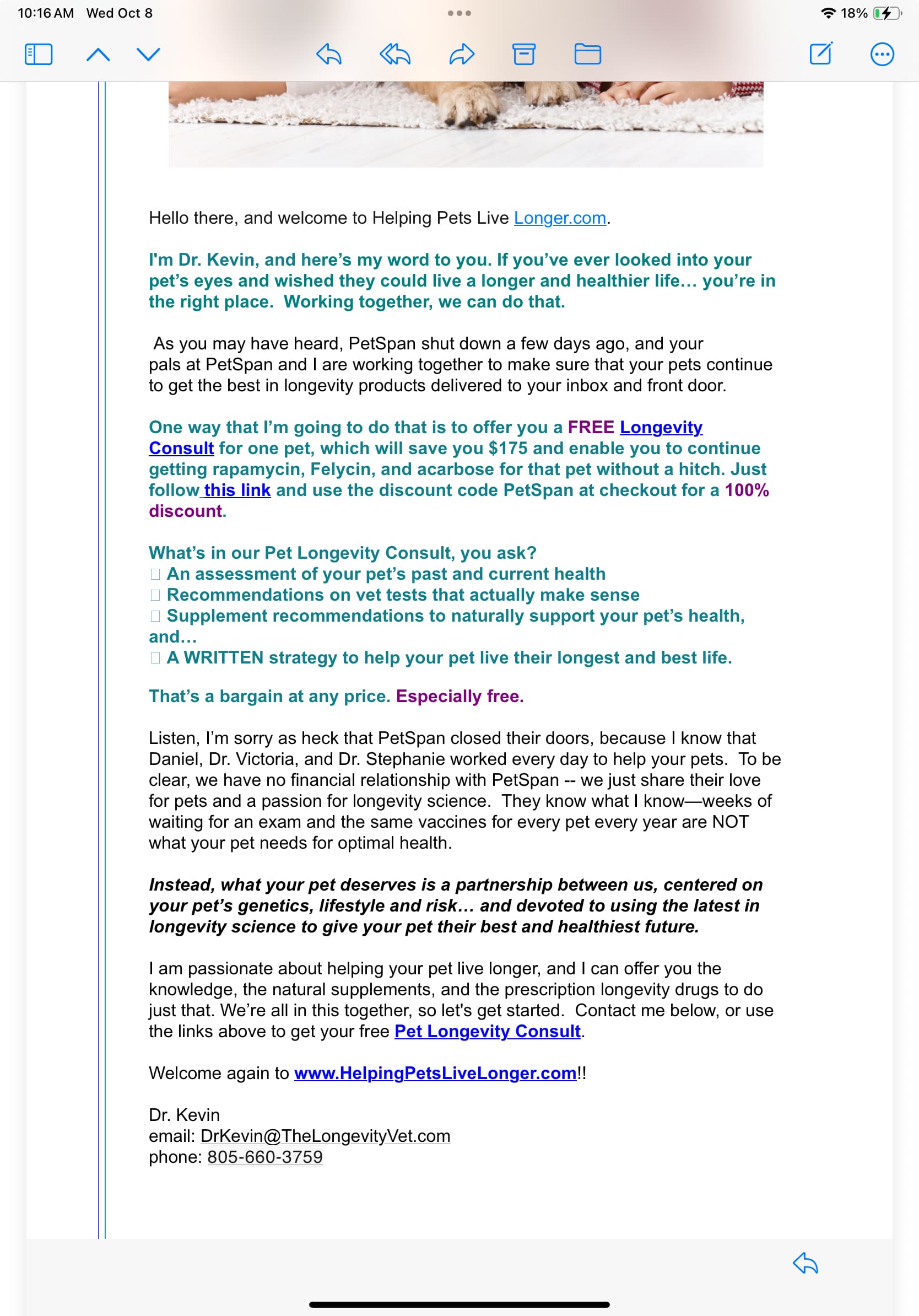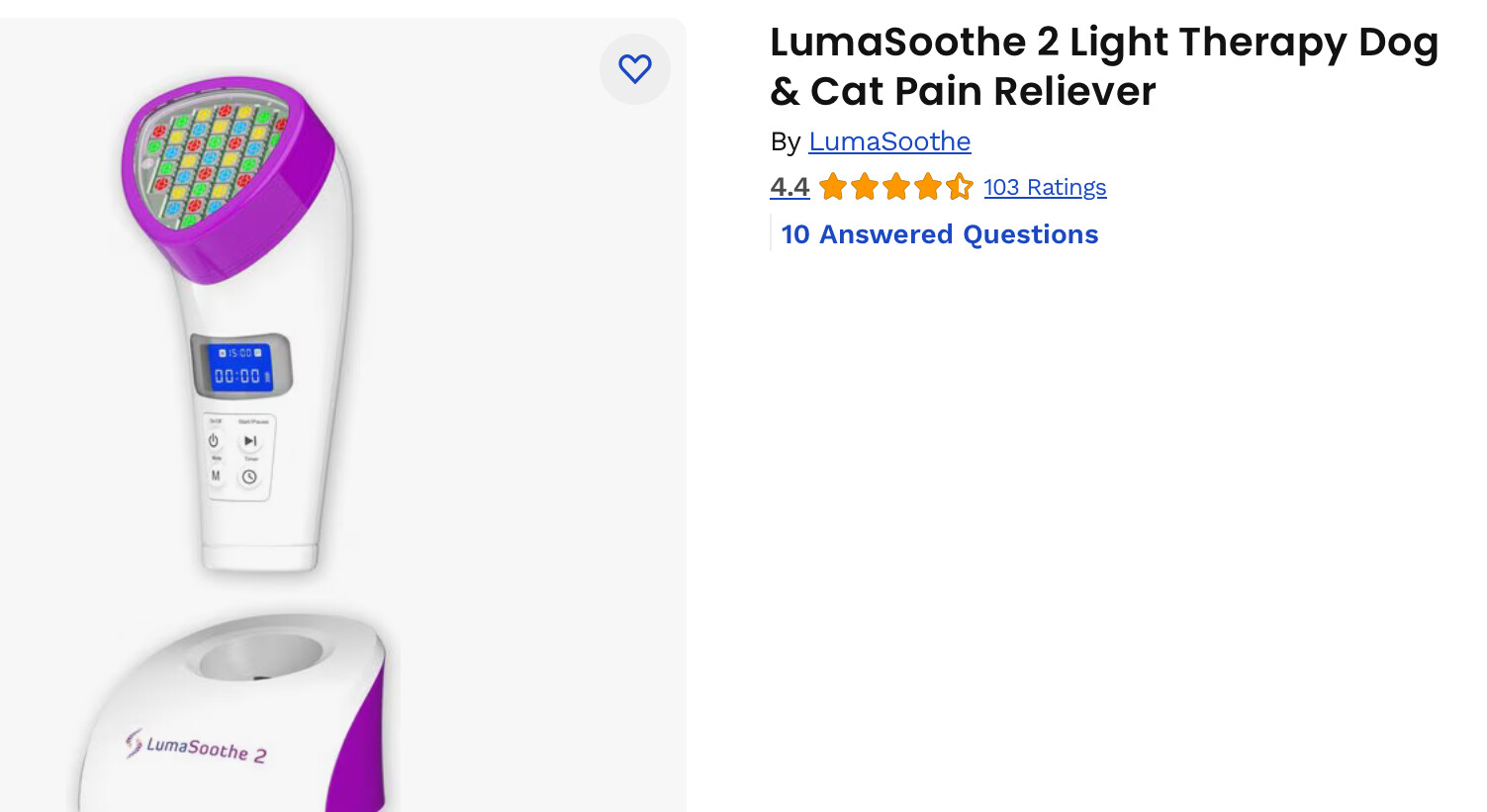I can now report on the effect of rapamycin on my cat skin cancer. The cat in question is a white cat currently 15 years old, who developed SCC (Squamous Cell Carcinoma) skin cancer already back in 2021, on his lower eyelid, but it was not diagnosed as cancer until much later (2024). Only in retrospect did we realize that his tearing eye was the first sign back at the end of 2021. A formal biopsy was conducted much later from another skin cancer patch on his ear. In any case, by 2024 the cancer had spread all to his ear and the vet recommended removing part of the ear. That surgery was done in May 2024. However, the cancer kept spreading. It was pretty bad on his lower eyelid, but no surgery was possible in that location. Meanwhile, the cancer spread to his other ear, and very rapidly started to develop all over his head and neck, and even in the shoulder area. The vet said surgery was pointless as the cancer will keep spreading and you can’t remove all of the skin from the cat.
By January of 2025, the cancer was very extensive, with large open hairless sores 2-3 inches in size on his neck and multiple points on his head and little patches on his nose. The vet could do nothing. Surgery was out and he had no drug recommendations. Just watching the extremely rapid progression all over his skin was extremely stressful to us, although the cat didn’t seem to be in pain. If he shook himself, blood would spray all over the walls. As you can imagine this was very hard to watch.
I was of course aware of rapamycin use against cancer, and finally, I felt that with no remedies from the vet we had nothing to lose and we’d try rapamycin as a last resort. We started him on 1mg a week, Biocon Eris Sirolimus from India on February 2nd 2025. Obviously, watching him so closely and with all the psychological pressure, I was acutely aware of the placebo effect (on us, not the cat, lol), so I was very careful reaching any conclusions, but the rapamycin seemed to work almost immediately. My wife claimed she could see slight effects already in the first two weeks, though I refused to believe such fast action. Nonetheless, over the next few weeks, the progress started becoming undeniable.
Friends, it was insane. Literally unbelievable. Had I not seen it with my own eyes, I would not have believed it as “too good to be true”. The cancer started retreating. It completely vanished from his neck - the huge open sores - and gradually started disappearing from his head. All this within the span of a few weeks. The only hard patches were the original eyelid and where it first spread, the ears. But finally in time, it disappeared from the ear too.
This felt like a miracle. Literally within 3-4 months the cancer retreated dramatically. The vet could not believe it, but he remembered how it looked before, plus we had some photographs. We told him about the rapamycin because we wanted him to have something to offer other cats in a similar situation (funnily he said he’d recommend trying rapa to his friend - human obviously - for the SCC on his face!).
However, unfortunately, I cannot announce a 100% success. The eyelid - original location - initially stabilized, but then started looking worse again. So, at the start of July of this year, we bumped up his dose to 2mg a week, because this would be roughly inline with the use of rapamycin cleared by the FDA for cats (obviously for a different indication) of a dose of 0.3mg per kg of body weight.
Unfortunately, there has been no progress with the cancer. It is still on his eyelid, and there are even occasional breakthroughs on his head and nose, though these usually go away after awhile. The eyelid is unfortunately not good. So for now, I can say that rapamycin definitely works on SCC in our cat, but not 100%.
My takeaway is that we should have tried rapamycin immediately the moment we saw something that we suspected was cancer. Had we done this when it was still confined to just his eyelid and ear, I’m convinced we would have had a very good chance to eliminate it altogether and then keep him on a maintenance dose. Clearly, it would have spared him having his ear cut off, because rapa cleared the other ear that was going in the same direction. As always with cancer YOU WANT TO CATCH IT EARLY in diagnosis and treatment.
Why did we not do so earlier? First, we were a little bit avoidant in diagnosing skin cancer, putting down the little sores to his scratching (plus he had other complications in his ear). That was wishful thinking. We should’ve suspected cancer immediately - he’s a white cat who loved to sun himself. Second, you have to go to the vet first, and not try to cure the condition yourself. It felt irresponsible to bypass the vet - he’s the first line. Had things gone wrong, we’d feel responsible for damaging the cat’s health by not going to the vet first. And we had to agree to the vet’s treatment - he’s seen thousands of cases, we are in no position to second-guess established veterinary practice.
But it’s the results that count. He lost half his ear to surgery and the cancer kept spreading. No further remedies were offered. Cancer was spreading very rapidly. In that scenario, we felt justified trying our own protocol. I now believe we’d have been much better off putting the cat on rapamycin from the get-go, not waiting for the cancer to spread and trying the conventional veterinary interventions which the vets themselves admit are only stopgap and no actual solution.
In fact, we should have put the cat on rapamycin regardless of cancer. Even if he was perfectly healthy. Because the balance of evidence says that animals benefit - we saw that proven in mice, and with trials in dogs, marmosets etc., I think the evidence says to go for it, unless there are counterindications (your cat is immunocompromised, has bacterial infections etc.).
I have to agree with Matt Kaeberlein. In his latest interview on his podcast he makes the point that prevention is the obvious best practice - as in his analogy do you wait for the car to break down and then going to the mechanic to try to get it fixed, or do you take care of your car before it breaks down, change oil etc. In his view it’s obvious that prevention is what you should choose (he even called someone who’d rather wait to get sick “a moron”).
So, in the case of my cats I’m a moron. I suppose there is a psychological barrier too. I am happy to make a choice for myself - heck, I’m on rapamycin, empagliflozin and other drugs and supplements. But it’s different when you are responsible for someone else. That’s why I’m very reluctant to recommend rapamycin to my friends - in fact, I only briefly mentioned the science and data behind rapa to one friend - because it’s not my body. Obviously, in the case of loved ones you would at least mention the possibility and the options (but never pressure anyone to take any medication!) - MK himself said that he’d let close friends and family know of the options. So in the case of your pets - should you make that decision? It’s complicated, because you already make the decisions about their health in other ways anyway.
In fact, this has motivated me to get my cat (the same one), on dapagliflozin - I wrote a post higher up in this thread my detailed reasoning and studies, so I won’t repeat them here. However, the point is that I’m being more proactive in the case of his kidneys and possible pleiotropic benefits. Just today I got the results of blood and urine tests after the cat being on dapagliflozin since early July. His kidney numbers have gotten better, but still not perfect. His proteinuria - the thing that worried me most - was cut in half, so it’s progress, though still not perfect (was +2, now +1). Again, the vet - as most vets - have no remedy and nothing to offer to slow down kidney disease and deterioration. So what do I lose here? We know that SGLT2i slow kidney deterioration - just because doctors don’t know that, as in the case of rapamycin does’t mean we should waste time we and our companion animals don’t have. One day, they’ll wake up to SGLT2i (as they’re slowly doing for rapamycin), but by then it’s too late. Our choice is to act now, or watch helplessly.
Yes, there is risk involved. So you calculate the risk and make the best decision you can. Even with dapagliflozin with my cat I have to modify. The lab results came back very good (all of his biomarkers look good, with big improvements in liver markers also!), but he’s been slowly losing weight (I suspect due to the glucose loss), and he’s dipped just below 10lbs (from 12lbs when he was a bit overweight). I don’t want him to lose more weight, so I am cutting back on the dapagliflozin 5mg to three times a week from daily.
We’ll continue to monitor his health and how he’s doing. But I am now more willing to intervene if the vet has no solutions to offer. The principle for humans applies to pets: first do no harm. So I check and doublecheck and keep doing research. I will not try anything risky, but also feel I must get ahead of the disease, not just wait for it. YMM.
![]()


